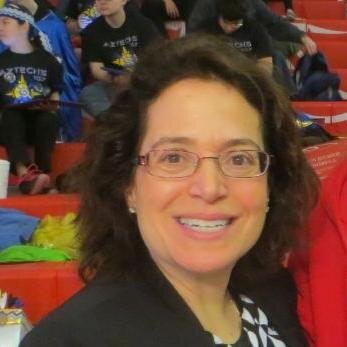SolidWorks Education hosts Regional NASCAR STEM Student Racing Challenge

STEM – Science Technology Engineering and Math. If you combine these subjects with RC Racing, Tony Schumacher – U.S. Army Top Fuel Dragster and seven-time champion and SolidWorks customer, 25 engineers from the US army and community, along with a great venue from Ten80 Education, you get 200 excited student to shout S–T–E–M and know what it means to their future.
SolidWorks EDU team hosted the NASCAR STEM Student Racing Challenge last Thursday at our new DS America's facility in Waltham MA. Our relator, Hobbs Brooks donate the enormous space and lunch needed for racing the fastest RC cars I've ever seen.
The best quote of the day was from Tony Schumacher who stated "you can't" bring a B game to an A+ race." He has a racing team of 9 that need to be the best and engineer everything in his car from the very tip in the front to the last component in the back. Tony also talked to the students about teamwork, the importance of STEM subjects and staying physically fit.
I met president of Ten80 Education, Terri Stripling 5 year ago, with her colleagues and a dream. A dream of developing K12 program that excited all students around engineering and racing – with a focus on math and physics. Terry – you have created a success!
We all drive a car – girls want to drive as much as boys. Ten80 makes it exciting for all students to learn about STEM subjects.
The students moved in groups from event to event.
Petroleum Independent Transportation (PIT) in this challenge, students charge their electric RC car ‘off the grid’ using renewable energies such as solar, wind, bio fuels and even hydrogen. In this rotation, students:
o Measure the voltage of batteries and examine a completed battery profile. Discuss ways to charge batteries.
o Measure ambient lighting conditions and wind conditions (fan) then discuss various .
o Examine solar and wind charging stations as well as a hybrid hydrogen fuel cell car.
The Robot Race Car is a new project developed in part by MIT Lincoln Labs. It uses an open source Arduino chip and radar sensors. The first challenge is for students to assemble the Robot RaceCar and program it to autonomously drive a circular, walled track as fast as possible with as few crashes as possible. In this rotation, students will see the car in action, discuss the logic you could employ to improve its performance and ‘unpack’ the robot components.
Mechanics Certification & Chassis Setup Investigation students followed the leaders in examining and adjusting the cars. In this rotation, students learn about the car systems and many of the primary variables in optimizing performance of a race car. These include gear ratios, tire type, chassis geometry (camber, caster, toe). They also learn about some of the most common adjustments and repairs.
Aerodynamics & Fabrication
In this rotation students examined major design variables that impact downforce and drag, the major aerodynamic forces.
o View a demonstration of plate car, wing car and sleek car while their models are showcased on the monitor.
o Look at progression of car body designs and SolidWorks Flow Simulation (color print / spiral notebook for each group of 3 students) including a plate car, wedge and sleek car body design. The monitor is showing a simulation animation.
o Students predict using crayons, the general aero profile of a 4th car body design while the simulation runs on the monitor. Compare the predictions to the final images.
o Time permitting, students quickly sketch a dream car and annotate the aerodynamic features.
Students went outside on a beautiful spring day into the DS Americas courtyard to talk about fabrication of their future cars.
Driving
Students learned to drive on short oval tracks. 6 Groups of 5-6 students are at each of 6 tracks. A helper shows them how to operate the car then runs a relay race in which one student drives the car around the track and passes the transmitter to the next student. First team to have all 5 students complete a lap wins.
Why do I like the STEM Racing Challange? As a former professor of physics, math, and engineering, it is an exciting program for all students and it allows the teacher to use their own creativity while not being overwhelmed by the cost or the contest. And racing cars, playing with gears and learning about drag is just fun! Marie









